Government ......
Security.......
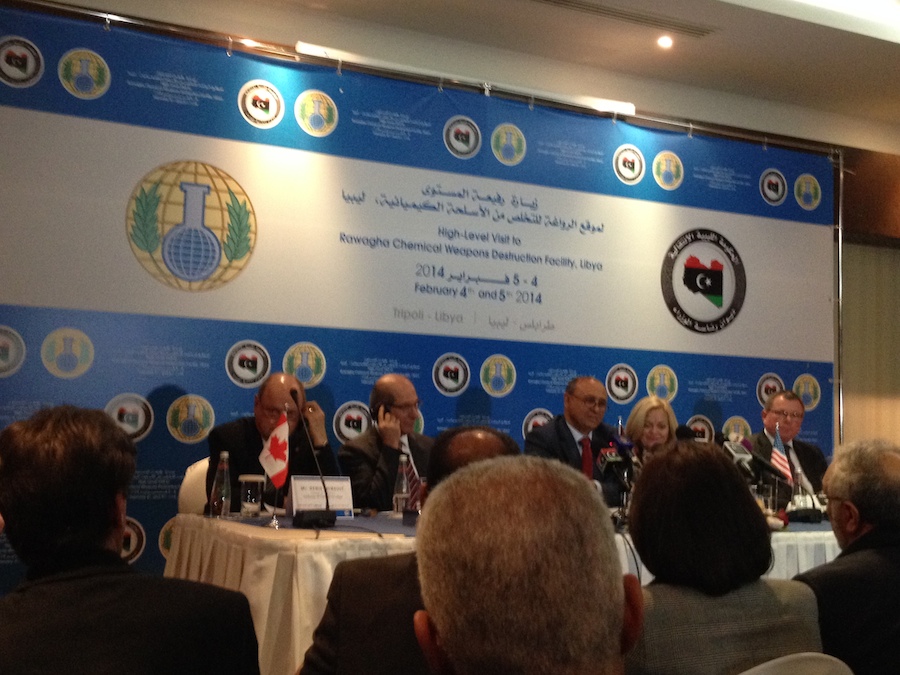
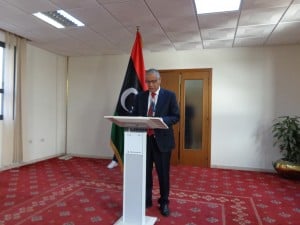
Modest and peaceful turnout at protests over GNC extension
By Ahmed Elumami.
Tripoli, 8 February 2014:
Despite months of planning and weeks of security concerns, yesterday’s protests against the extension of the General National Congress(GNC) beyond 7 February passed without incident, attracting far fewer protesters than anticipated.
Some two thousand people gathered in Tripoli and several hundred in Benghazi yesterday, with still smaller demonstrations reported in other towns, including Shahat, Beida, Tobruk and Ajdabiya. Amidst much flag-waving and chanting, protestors carried brooms and dustbin bags, calling for a clean-up of Congress. “Martyrs, martyrs, for you, Libya,” a group in Tripoli’s Martyrs’ Square chanted. “Yes to Libya, no to armed groups,” another chanted, referring to the belief held by some that the GNC is heavily-influenced by militias.
“The GNC has adopted a roadmap which gives them more time to exploit their positions for their own gain,” Tripoli protester Wadie Essbaq told the Libya Herald. He added that the lack of response by Congress to ongoing abductions, torture and assassinations across the country was unacceptable.
Tripoli elder, Abdullah Banoun, addressing demonstrators from a stage erected in Martyrs’ Square, said the dignity and freedom of the Libyan people had to be protected. He added that Libyans would not accept parties or groups which sought to destabilise the country.
History lecturer Farida Awad Zunni said that arguments suggesting the removal of the GNC would create a political vacuum, were simply an excuse. “It is essential that Congress goes because they have provided us with nothing and they are wasting public money,” she said.
Independent Benghazi Congressman, Mohamed Busidra, told this paper, however, that the media had exaggerated the public’s desire to see the dissolution of the GNC. “I think personally that everything happening now is due to the political isolation law and Mahmoud Jibril, the head of the National Forces Alliances (NFA),” Busidra said.
Congresswoman Hana Jibril Ufri, Misrata GNC member for the NFA, which has supported the protests, said she accepted the extension on the grounds that it was better to transfer power peacefully rather than leave the country vulnerable to armed groups taking control. She added, however, that Congress had failed and was unable to achieve its goals. This, she said, was unacceptable.
Fears that yesterday’s demonstrations would be marred by violence were unfounded, with most characterised instead by a celebratory atmosphere. Young and old attended Tripoli protests, with families, children and the elderly seen waving flags and joining in the chanting.
The main roads leading to Martyrs’ Square were closed by traffic police and visible security presence was modest.
The roads outside the GNC were blocked by Tripoli Security Directorate yesterday and on-street security remains high in the area, as further protests against Congress are expected at their Sunday session.
Congress President Abu Sahmain flies to Tunis despite crisis at home
By Libya Herald staff.
Tripoli, 7 February 2014:
Despite the political crisis over Congress’ term of office with political groups claiming that it ends today and demanding a new Congress be elected, the President of Congress, Nuri Abu Sahmain, has flown to Tunis. He was invited to attend and address a special ceremony at the National Assembly attended by a number of other Middle East and regional heads of parliament to inaugurate the new Tunisian constitution which was overwhelmingly approved a week and a half ago.
The departure has prompted adverse reactions with accusations on social media site accusing him of running away from the political crisis centred on Congress.
Abu Sahmain caused public anger last November when he flew to Kuwait for the 3rd Africa-Arab Summit at a time of political instability following the
kidnapping of the prime minister and the role in it of the Libyan Revolutionaries Operations Room, which he had created and which is supposed to be answerable to him.
Supplies “blocked” from reaching Tebu community: report
By Jamal Adel.
Tripoli, 7 February 2014:
Supplies of food and medicine are failing to reach Tebu communities because main roads and Kufra airport remain blocked by ongoing clashes, Tebu sources claim.
Fighting between the Zwai and Tebu tribes in Kufra and Sarir have closed the Kufra-Ajdabiya road, meaning that supplies for the southern towns can only move by air.
A local Tebu official, speaking on condition of anonymity, said that Kufra’s Military Council, predominantly made of up members of the Zwai tribe, had routinely prevented supplies reaching the Tebu community from the airport sit was liberated in 2011.
He said that two generators provided to a clinic in Kufra’s Tebu-majority Al-Shura distict in 2012 by the International Red Cross had never left the airport.
“We have frequent power cuts and there are no electrical generators available to the clinic,” said the head administrator for the Hay Al-Shura clinic, Zaki Hagar. ”We are also in desperate need of medical supplies like syringes for insulin injections.”
A local Tebu businessman, Abdullah Damby, said: “No food supplies have arrived in Tebu districts for over two months.” He claimed that the situation was verging on a humanitarian crisis.
Grand Mufti supports Congress remaining in office, forbids action against it.
By Libya Herald staff.
Tripoli, 7 February 2014:
The Libyan Grand Mufti, Sheikh Sadik Al-Ghariani, has said that all arguments about whether Congress’s term in office ends today have been resolved by its vote on the roadmap extending its existence until September 2015 at the very latest, and that the matter was closed. It was now forbidden to protest or take action against Congress, he ruled. “People are not permitted to go against the Congress and lead the country to chaos and conflicts,” he declared.
Speaking on Wataniya TV on Wednesday during the Islam and Life programme, he said that there had been confusion as to whether Congress should be dissolved. “Even legal experts in constitutional law are not in agreement on this issue”, he noted. However, the roadmap vote “by a overwhelming majority of 146 votes” had removed all confusion. It was a clear decision “which we must all adhere to”.
To remove Congress now would not resolve anything, he declared. On the contrary, it would push the country into deeper chaos and conflict. Libya would not be made safer. None of the groups involved in the various clashes around the country would suddenly stop fighting, he warned.
Given that situation, people had to rally round Congress and support it.
“Our duty now is show obedience to the legitimate head of the state, the ruler, who is currently represented by the GNC which was elected by the public”. That had to be done “despite its inefficiency and all the suffering we have seen from it” because it was the only option – “because this would prevent bloodshed and unite the country until we pass this difficult stage”.
“I am, therefore, saying that it is haram to go out against the Congress. He who does would be considered a transgressor,” the Grand Mufti ruled. Moreover, that it was permissible for action to be taken against such “transgressors”, he ruled but without stating was sort of action was possible.
18 pumps to avoid water cutoff in Benghazi
By Mutaz Gedalla.
Benghazi 6 February 2014:
The water shortages in Benghazi resulting from the loss of electrical power to pumps on the Man-Made River have reduced in recent days lives thanks to action taken by the local council.
Benghazi Local Council has bought 18 water pumps, and installed them at Sidi Mansur, near Benina. They are being used to pump the water from wells in the area into central Benghazi. Councillor Abdussalam Busbaa, a Benina member of the council, said that installing the pumps had provided an immediate solution to the city’s water problem. They are producing 20,000 cubic metric of water daily.
The wells were the main source of water for Benghazi before the Man-Made River was built.
However, an official at the water company said that the Sidi Mansour supply would be insufficient to meet demand within a week. Already, the current flow to consumers had had to be reduced in some areas. The problem, he said, would be fully resolved only once clashes in Sarir were ended. If it were not, he added, Benghazi would face real serious water shortages.
Benghazi Local Council has meanwhile urged local consumers to reduce their water usage.
Sebha peace deal on brink of collapse
By Jamel Adel.
Tripoli, 6 February 2014:
A mediator between warring tribal factions in Sebha has said the current state of peace could be on the brink of collapse after Zintani forces which moved in to secure the area withdrew.
Khaled Salim, a member of the Zintani mediation committee which arrived in Sebha to negotiate an end to violence between Tebu tribesman and the Awalad Suleiman clan, told the Libya Herald that while relative stability had returned to Sebha for almost a week, members of the Awlad Suleiman tribe had refused to comply with particular terms of the truce. The point of contention was the demand that they withdraw forces from their base at the city’s Faris military compound and hand it over to neutral forces.
Zintani and Misratan revolutionary forces moved into Sebha to act as a buffer between the combatants and wrest control of nearby Tamenhint airbase from Qaddafi loyalists. The Zintan force arrived in the area five days ago at the behest of the government but withdrew yesterday.
An indication that the truce was collapsing was the kidnapping yesterday of seven Tebu detainees. A local Tebu elder in Sebha’s Tebu-majority Qahira district, Adem Ahmed Dazi accused Awlad Suleiman forces for the abduction saying that the seven were being held at the Faris base.
They were seized whilst being escorted to a hospital following a firefight with Misratan revolutionaries. One Tebu man was later reported shot dead outside the disputed base when he attempted to negotiate their release.
When contacted by this paper, Salim said that the Zintani forces were already some 60 kilometres from of Sebha.
He indicated that Misrata’s revolutionaries were also likely to withdraw soon.
Zeidan not in favour of forming a “crisis government”
By Sami Zaptia.
Tripoli, 4 February 2014:
Speaking at Monday’s press conference, the Prime Minister said that he was not in favour of forming a so-called “crisis government”.
Asked by the media if he intended to do so, Ali Zeidan said that he was not going to form a one “just to satisfy the demands of the street”. He further added that “some people do not even know what a crisis government is”.
It will be recalled that Zeidan is reported to be on the verge of either reshuffling his present cabinet, or appointing brand new ministers or carrying out both new appointments and a reshuffle at the same time.
The Prime Minister ventured that when one talks about a crisis government, one is talking about a government that has a vision and plans.
He said that a crisis government would involve the merging of some ministries and departments and the suppressing of others, but his government was an interim one and Libya’s state and institutions were already weak and need strengthening (implying that a crisis government would only weaken the state and government further).
The government’s life was limited, it could end any time and the way ahead was not clear, he explained. Therefore, without having an idea of the length of the government’s life it was not possible to create a plan and vision, he declared.
Zeidan said that his government had reached its natural end and that it had at its beginning put forward a 14-month plan and vision, ending in February, which it has now completed. If his government was to be allowed to carry on longer, it would then need a new vision or plan, he added.
Either way, he explained that he did not foresee his government continuing longer than 24 December (2014), which was seen the maximum life of the GNC last week, or the end of July (according to the proposed GNC roadmap at the time of his press conference).
Misrata leaders say removal of GNC would lead to chaos
By Taher Zarooq and Ahmed Elumami.
Misrata,Tripoli, 4 February 2014:
Local leaders and officials in Misrata have announced their support for the General National Congress (GNC) saying that it is the source of legitimate power in the country. The announcement is a response to the perception that Congress ought to be dissolved on 7 February and concerns that some groups may try to use force to achieve that end.
In a statement made on Sunday, leaders of Misrata’s Shoura, Military and Local Councils and members of the city’s civil society organisations said that any illegitimate removal of Congress would plunge Libya into chaos. They added that the GNC needed to quickly issue a roadmap outlining the political path for the country according to a specific timetable.
In fact, it did so on Monday, although under the proposed roadmap, it could remain in office until September next year.
The roadmap rests on the condition that the new constitution is drafted and ratified by referendum before that date.
The Misratan leaders said that the legitimacy of the state and its security were “red lines”, calling on revolutionaries to be ready to protect them.
They added that they felt the country had been experiencing attacks from movements fuelled by “the enemies of the 17 February revolution”.
Government has presented the 2014 budget to GNC
By Sami Zaptia
Tripoli, 4 February 2014:
Speaking at Monday’s press conference, the Prime Minister alongside his Deputy Minister of Finance, Maraja Ghait, confirmed that the 2014 budget had been presented in the last few days to the GNC for approval.
Neither gave details of the content of the budget, saying that despite the shortfall of revenue as a result of the of blockades in the east, Libya’s only source of revenue, they were able to manage for the year 2013.
Ghait complained that his Ministry inherited many old and out-of-date regulations that had caused delays for the government, revealing that although the national revenue was down in some months to as low as 10 percent, he expected that the government would be able to carry on for another three to four months without problems.
Security.......
Benghazi imam murdered
By Noora Ibrahim and Ayman Amzein.
Benghazi, 8 February 2014:
The imam of Al-Ansari mosque in Benghazi’s Hadaiq district was killed yesterday afternoon. Sheikh Atif Al-Madouli died when gunmen shot at him several time while he was returning home from the mosque after Asr prayers. According to Ibrahim Al-Sharaa, spokesman for Benghazi Joint Security Room, he was taken to Benghazi Medical Centre where he was pronounced dead on arrival.
Madouli, a Salafist, is reported to have been a member of the external intelligence forces under the Qaddafi regime.
Following his murder protesters burned tires in the area.
NFA official claims assassination attempt
By Libya Herald staff.
Tripoli, 7 February 2014:
Abdulmajid Milaiqtah, the chairman of the National Forces Alliance’s steering committee, says that there was an attempt to kill him by guards at a checkpoint on Tripoli’s Airport Road yesterday evening while he was on his way to the Libya Al-Dawliya TV station. Speaking later to the TV station by phone, he said that guards insisted on checking his vehicle and then tried to arrest him. When he resisted, as many as 55 of them started firing, he said, “wounding two of my personal staff, one of who sustained serious injuries”.
Reports of the assassination attempt have also been made on the NFA’s Facebook page.
The checkpoint guards were from the nearby headquarters of the Chief of General Staff (usually known as Arkan).
General Staff spokesman Ali Sheikhi, however, denied any such attempt. He said that Arkan guards at the checkpoint had stopped Milaiqtah and those accompanying him, admitted that the guards had overstepped their duties and there had been an altercation, but it had been sorted out. No one had shot at Milaiqtah, he insisted.
Later though, he said, five carloads of masked gunmen attacked the Chief of Staff headquarters and stole three armoured vehicles.
Claims by General Staff sources that the attackers were from Zintan and members of the Qaaqaa Brigade, led by Abdulmajid’s brother Othman, and that they arrived in four-wheel drive vehicles mounted with anti-aircraft weapons, were not confirmed by Sheikhi. He told the Libya Herald, however, that some of the attackers were recognised as members of General Staff own forces. Their identities were known and the military police were now investigating.
The NFA, which says it no longer has its own headquarters, supports an early dissolution of Congress and has rejected the “roadmap” voted by it which would see it remain in office, possibly until September 2015. There have been unconfirmed claims that some elements in the General Staff office are allied to the Muslim Brotherhood which does not want an early dissolution.
The Qaaqaa brigade is part of the Libyan army and is used, among other duties, to provide protection to some government ministers. Othman Milaiqtah was reported to have fired shots outside the Congress building the day before yesterday when he arrived unexpectedly and was told that he could not see Congress President Nuri Abu Sahmain, who was having another meeting.
Young activist survives assassination attempt in Benghazi
Benghazi, 6 February 2014:
A young activist involved in the movement demanding the dissolution of the General National Congress (GNC) was the target of an assassination attempt today.
Abdulla Mohammed Al-Senussi Al-Gharyiani was in a critical condition in a Benghazi hospital, spokesman for Benghazi Joint Security, Room Ibrahim Al-Sharaa, told the Libya Herald.
He said that 22 year-old Ghariyani was the sole victim in a blast caused by a remotely detonated device which exploded near his car.
Ghariyani was active within the widespread movement calling for the dissolution of the GNC tomorrow, the date at which its mandate had originally been set to expire within the constitutional declaration.
Meeting of national tribal leaders marred by squabble
By Jamal Adel.
Tripoli, 7 February 2014:
A meeting at a Tripoli hotel of elders and tribal leaders from across the country descended into chaos yesterday when remarks by one of them provoked a backlash forcing the delegates to quit for an early lunch.
While the members had gathered in Tripoli to discuss the possibility of a more prominent national role, the meeting was disrupted by raucous heckling when a delegate from the Al-Awageer tribe, the largest tribe in Benghazi, accused his colleagues of various inadequacies.
The attack elicited a strong sense of dissatisfaction among most members and tempers flared to the point that lunch had to be called early. By the time talks resumed at 4:00 it was too late to make any formal decisions.
Beforehand, the head of Tripoli Local Council, Sadat Elbadri, had made opening statements greeting delegates, followed by an announcement of the the meeting’s support for the army and police.
The delegate for the south, Abdisslam Ali Khalifa also expressed, at length and without reserve, his gratitude to Zintani and Misratan revolutionaries for restoring peace to Sebha after recent tribal violence.
Attackers start fire after failed storming of Libya Al-Ahrar office in Benghazi
By Ayman Amzein.
Benghazi, 6 February 2014:
More than 80 armed men attempted to storm Libya Al-Ahrar’s office in Benghazi last night, setting fire to a car outside the building when they were unable to break in.
A security employee for Libya Al-Ahrar told the Libya Herald that he noticed unusual movements on surveillance cameras at around 10 pm, prompting him to close the building’s iron shutters. Moments later the attack began when the assailants, some wearing masks, opened fire on the shutters.
They then tried to detonate a homemade-bomb in an attempt to break through the shutter but this failed to explode. The attackers eventually set fire to one of the channel’s trucks parked outside the building and left, the security employee said.
Al-Asima TV has decided to withdraw its staff from Benghazi following threats of violence and the suspected kidnapping of its Benghazi office director, Mohammed Al-Sarayit, who has disappeared in mysterious circumstances. Sarayit’s wife told Libyan news channels that when her husband failed to returned she tried to contact him numerous times but his phone was turned off.
She said she feared he may have been abducted.
Both Libya Al-Ahrar and Al-Asima TV have been critical of Ansar Al-Sharia and the Muslim Brotherhood.
There have also been unconfirmed reports of an attack on Libya Awilan channel workers in Benghazi.
Libya destroys all useable chemical weapons
By Tom Westcott.

International support was essential for the destruction of Libya’s usable chemical weapons, said Foreign Minister Mohamed Abdulaziz (Photo: Tom Westcott)
Tripoli, 4 January 2014:
Libya has disposed of all usable chemical weapons stockpiled by the old regime in an operation completed a few days ago, Foreign Minister Mohamed Abdelaziz announced yesterday.
The destruction of 517 artillery projectiles, eight 250kg aerial bombs loaded with mustard gas and 45 bomb components – plastic tubes filled with mustard agent – was the final stage of the disposal of an arsenal of chemical weapons. Many of these were previously undeclared munitions, discovered after the revolution and transferred to a storage facility in the south-central desert location of Ruwagha, some 700 kilometres outside the capital.
With this operation, Libya had fulfilled its international and regional commitments and removed a potential threat to local communities and the environment, Abdelaziz said. He thanked the Organisation for the Prohibition of Chemical Weapons (OPCW) and the US, Canada and Germany for their support. He also commended the Ministry of Defence which, he said, spared no effort in help with security and logistics.
“Without all this support, it would not have been possible to reach this milestone,” OPCW’s Director-General Ahmet Uzumcu said. Libya had set an example of success based on international co-operation which could be emulated by other countries, such as Syria, on a larger scale, he said.
“The destruction of these weapons was implemented precisely and accurately with careful safety measures and in accordance with international standards,” Abdulaziz said. “We were very pleased that the operation was conducted without any injury or damage.”
Destruction of the weapons was carried out at Ruwagha in a static detonation chamber, monitored by international inspectors with technical assistance from American experts. At the same site, Libya last year destroyed its stores of bulk mustard gas.
The operation was said to have been particularly challenging because the munitions were old and unstable. “When dealing with old munitions, different methods of destruction are required, because the process is very hazardous,” a spokesperson for OPCW told the Libya Herald. The machinery Libya had been using was installed and operating for some time, he said, so new equipment was required. This project was financially supported by Canada, he said, adding that it still took almost a year after the revolution to reinstall all the necessary infrastructure to prepare the facility for use.
US Ambassador Deborah Jones pointed out that it had been a really great week for Libya, likening the destruction of the chemical weapons to Libya’s football win, saying it was another goal scored. Abdulaziz picked up on the football metaphor and said that teamwork had led to the success of the operation.
Libya signed the UN Chemical Weapons Convention in 2004, immediately destroying a declared arsenal of 3,500 unloaded munitions with a bulldozer – a cheap, fast and reliable method of disposing of munition components, according to OPCW. However, there was then a hiatus of some six years, while the old regime waited for financial support from the international community. The was not forthcoming and eventually, in October 2010, work started on destroying chemical weapon agents.
This was suspended, however, when part of the destruction facility malfunctioned. When the 17 February Revolution broke out, just months later, the embargo placed on Libya meant the spare part could not be ordered.
“It was not the revolution itself, but rather the malfunction of the facility that stopped activities,” the OPCW spokesman said. After the revolution, OPCW inspectors found all electronic seals placed on the agent in February 2011 were still in place. From February 2012, efforts to resume destruction were restarted by the government.
The most recent operations have seen the destruction of all Libya’s Category 1 chemical agents. The country now has a deadline of December 2016 to destroy its Category 2 chemical precursor agents.
Weapons collection plan being created: Zeidan
By Sami Zaptia
Tripoli, 4 February 2014:
Speaking at Monday’s press conference, Prime Minister Ali Zeidan revealed that his government was on the verg of creating a team that will create a plan for weapons collection.
The plan will be for the collection of weapons from all Libyans including the militias, he explained.
The idea was to have a nation that is not “totally armed” with the “streets dominated by weapons”, Zeidan added.
The Prime Minister admitted that it is a long term plan and one that involves the participation of the UN and the international community. The plan will be managed by Libyans specifically qualified for this type of work, he concluded.
Gunmen launch attack in hospital
By Ayman Amzein and Noora Ibrahim.
Benghazi, 4 February 2014:
A number of patients are reported to have been injured when unkonwn gunmen started shooting at guards in Benghazi’s Al-Jalaa hospital late this evening, according to a statement from the hospital. None of the guards, from the Saiqa Brigade, were injured.
There are no further details as yet.
Three vehicles, said to belong to the guards, were set on fire.
Earlier in the day, in a separate incident, there was an attempt to kill an official named as Naser Ali Al-Sbaihi. His car was shot at while he was driving in Gwarsha. He was not hit but the car was damaged. According to a security source, the gunmen was caught and is now being interrogated.
Last night, there an attempt on the life of a Salafist sheikh, Rafah Abdullah Al-Hadar. He was shot while in Hay Salam district. He is reported to be in a stable condition in hospital.
Thieving farmer cripples Man-Made River water supply
By Jamal Adel.
Tripoli, 4 February 2014:
A farmer stealing water from the Man-Made River has added to the misery of people in the east, by causing a high-pressure leak that engineers are struggling to fix.
Flows of water to Benghazi and other eastern cities have already been disrupted by the closure of the Sarir power station, which cut power to the pipeline’s pumps in the south. Benghazi’s supply has dropped from 280,000 to 170,000 litres a day. The city is having to make up the shortfall by tapping the agricultural reserves in the Omar Al-Mukhtar reservoir to its east.
According to the Man-Made River Authority, water began gushing uncontrollably last night from a leak in the line at a farm 10 kilometres north of Ajdabiya toward Zuetina. Supplies to both towns were hit as engineers tried to lower the pressure elsewhere in the pipeline, so that they could bring leak under control. Operations and Maintenance manager Sami Al-Jahani told the Libya Herald that the job of the engineers was made more difficult by the flooding around the pipeline which the theft had caused.
Jahani said this evening that the leak had not yet been stemmed. He said that he was not yet in a position to estimate how much water had been lost so far.
Water shortages from Benghazi to Sirte have been occurring over ten days following clashes in the south which shut Sarir power station. With reduced power, the MMR has been able to function at only a fraction of its capacity. There have been reports that unless Sarir power station reopens, water supplies for Benghazi and Sirte will have run out by Thursday.
Zeidan denies Le Figaro report of foreign troops in south Libya
By Sami Zaptia

Prime Minister Ali Zeidan denied categorically the report by Le Figaro that foreign troops were in southern Libya (Photo: Sami Zaptia).
Tripoli, 4 February 2014:
Speaking at yesterday’s press conference, Prime Minister Ali Zeidan denied categorically the claim by French newspaper Le Figaro that US forces were present and training in the Southern desert of Libya.
Moreover, he also denied the report’s claim that their alleged presence in Libya was with the acquiescence of the Libyan government.
Zeidan said that he can assure the Libyan public that there are no foreign troops in any part of Libya with the agreement of the Libyan government, nor had the Libyan government agreed with any foreign forces to strike at any targets in Libya.
These rumours are totally unfounded, Zeidan insisted.
The Prime Minister also added that if Libya needed foreign troops, the process would be followed through the knowledge of the public and through the cabinet and the GNC.
Zeidan insisted that the government was here to implement the will of the people and for the protection of the freedom of the people and the sovereignty of the nation.
The government is not here to charge foreigners or (foreign) nations to strike militarily at its citizens, he insisted.
With regards to the “pockets” of insurgents in the south of Libya, Libya used its own forces to solve these problems in negotiations with the citizens there, Zeidan explained.
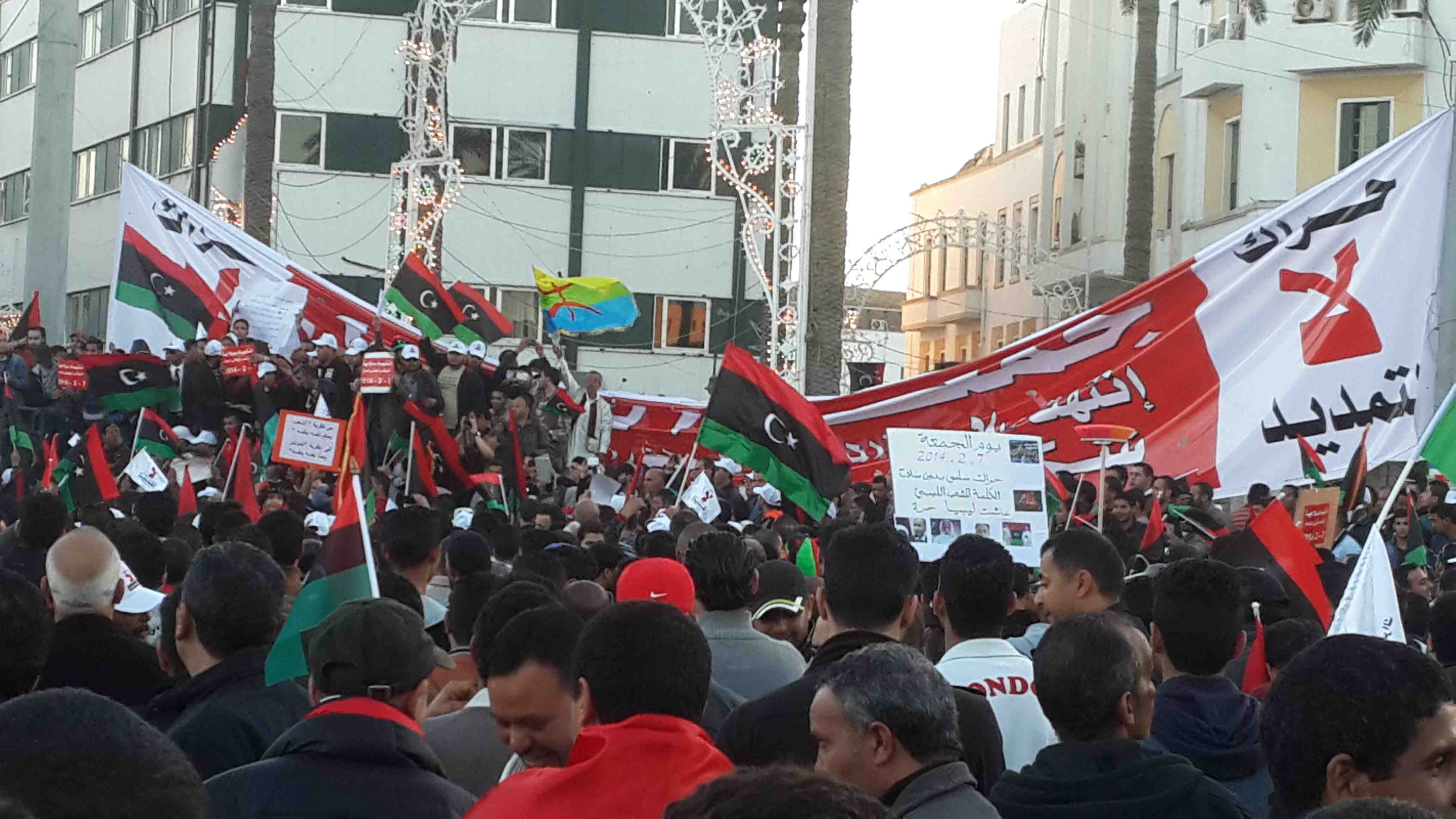
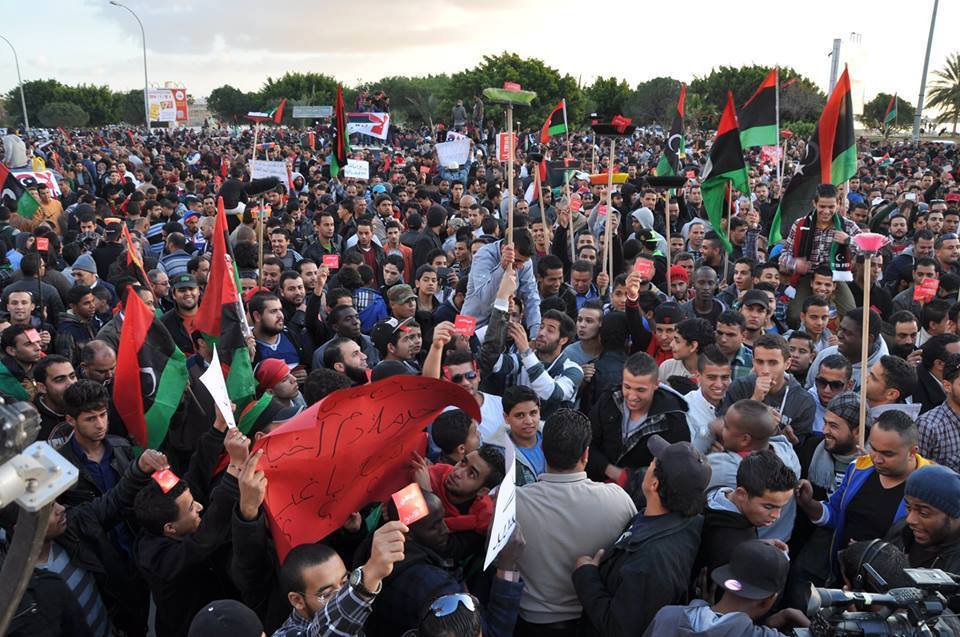
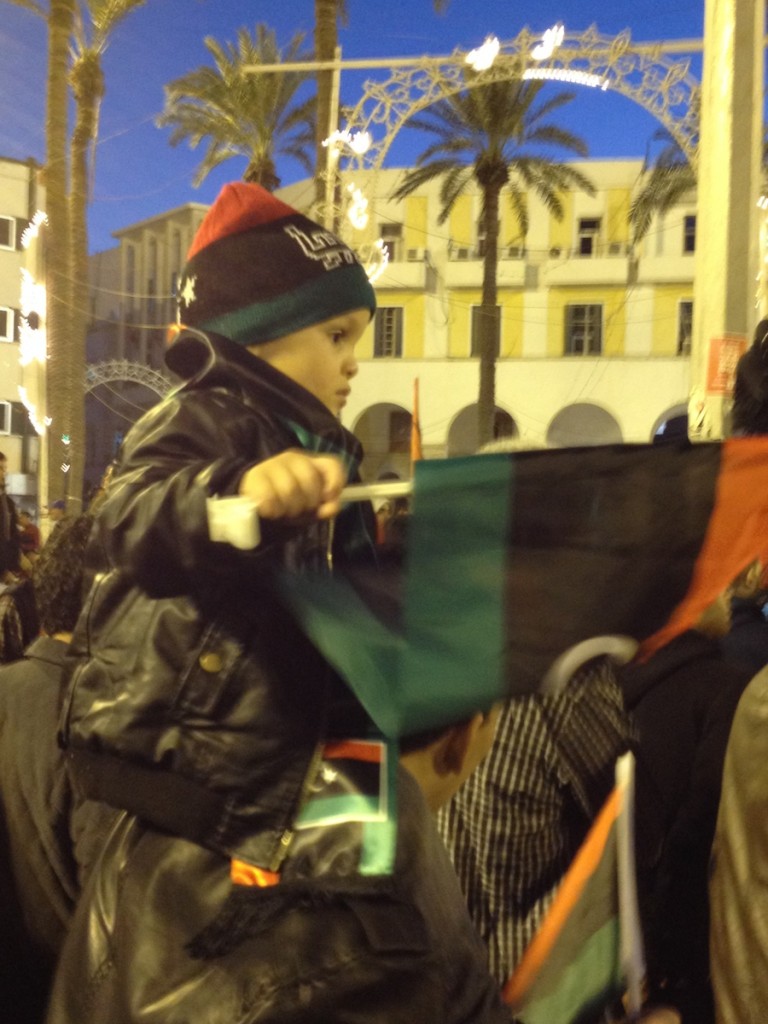
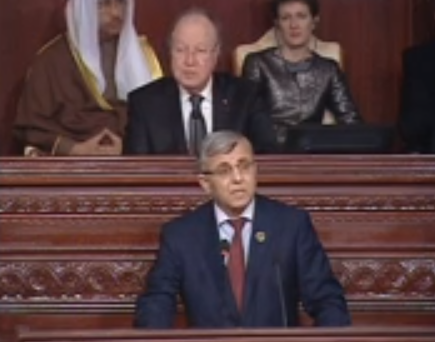
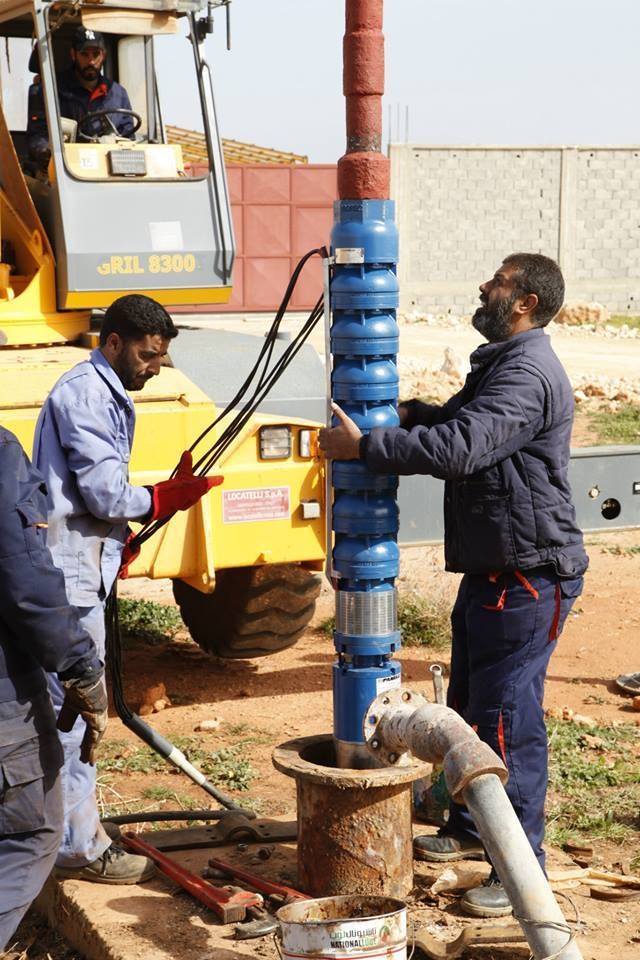
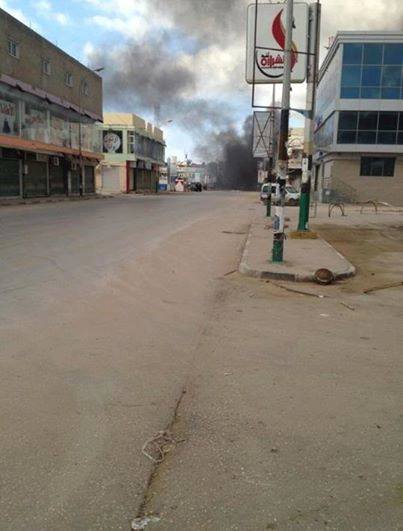
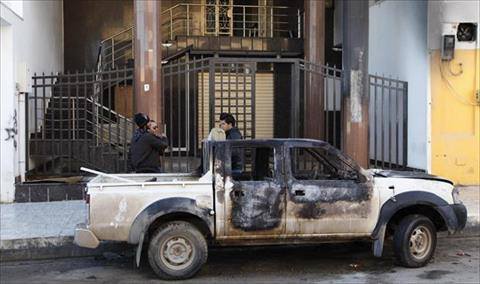
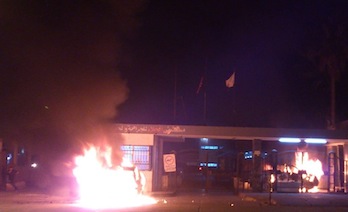
No comments:
Post a Comment